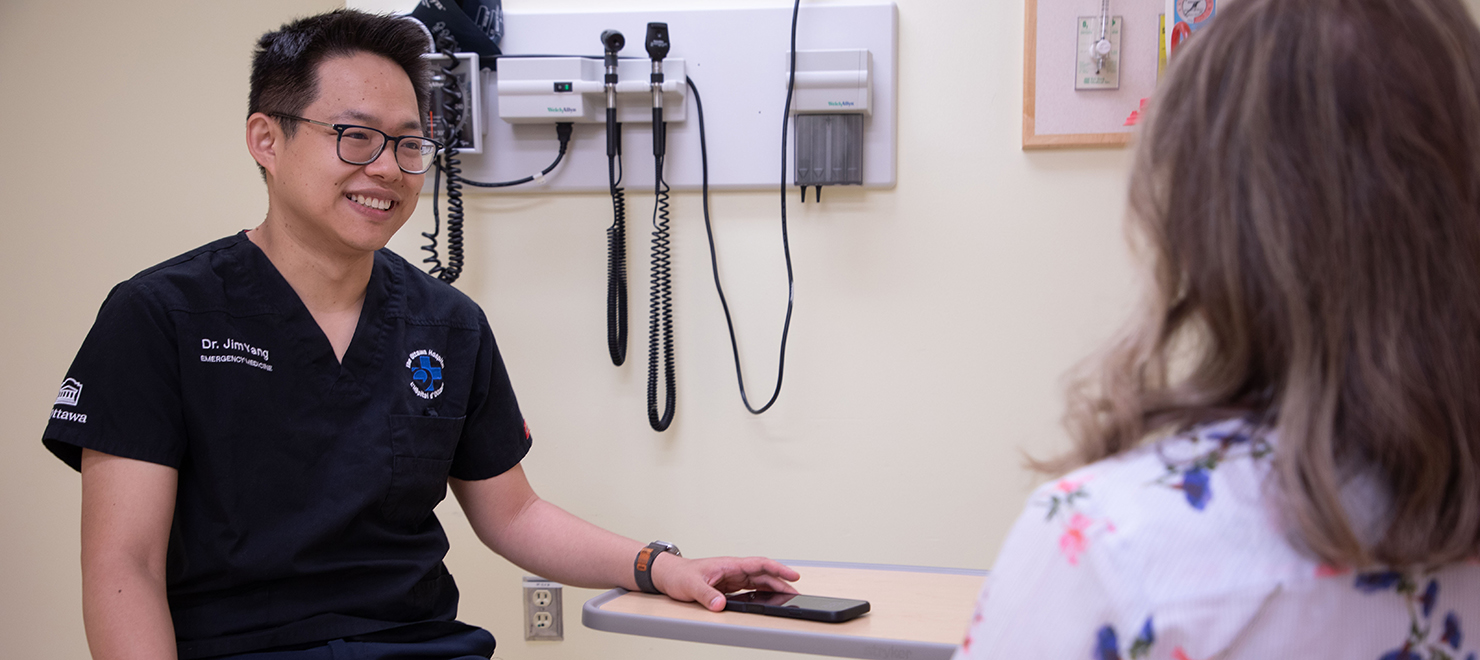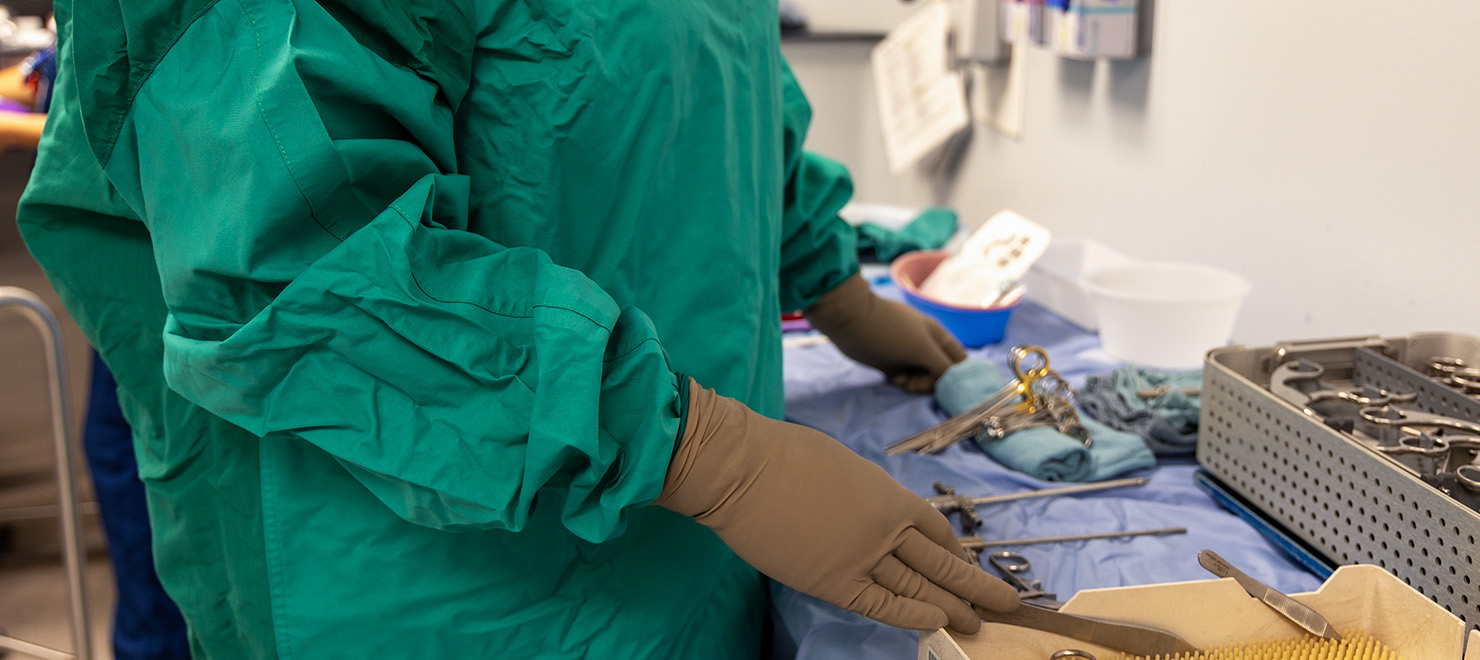
The Ottawa Hospital offers an array of services and resources to help meet the specific care needs of the 2SLGBTQIA+ community — including a provincial-first gender-affirming surgery clinic, a 24/7 care program for survivors of sexual assault and intimate partner violence, and a specialty clinic for medically complex patients seeking help on their transition journeys.
To help you navigate all these supports, we’ve compiled and summarized them here for easy reference.
Gender-affirming surgery clinic
This clinic for adult patients offers masculinizing and feminizing top, bottom and facial surgeries — and is the first in Ontario and the second in Canada to offer all three of these procedures.
Referrals to this clinic are accepted from any physician or nurse practitioner.
Gender Diversity Specialty Clinic
The Ottawa Hospital’s Gender Diversity Specialty Clinic is one of Canada’s only hospital-based clinics dedicated to caring for medically complex trans and non-binary patients on their gender affirmation journeys. These include patients who have had a hormone-dependent cancer (such as breast or prostate cancer) or an embolic disease (such as a stroke, heart attack or pulmonary embolism) or who are taking immunosuppressants or HIV treatment.
Our clinic finds a hormonal regiment tailored to each patient and refers them to their primary care provider, who can perform the therapy and follow up with them throughout their gender affirmation journey. For patients who do not have a primary care provider, our clinic will refer them to a trans health program in the community.
The clinic is open once every month. Virtual appointments are also available. A referral from a physician or nurse practitioner is required.
Pre-exposure prophylaxis for HIV (PrEP) clinic
The Ottawa Hospital’s PrEP clinic provides consultation and follow-up to individuals who are HIV negative but at risk of HIV infection and interested in using antiretroviral medications to reduce their risk. Regular, three-month follow-up is required to monitor kidney function and to test for HIV. During follow-up, the clinic also provides testing for other STIs, including gonorrhea, chlamydia and syphilis.
A referral from a physician or nurse practitioner is required. Those without a primary care provider can be referred to our PrEP clinic through Ottawa Public Health’s Sexual Health Clinic.
For more information on pre-exposure prophylaxis and to find other health-care providers offering PrEP, please visit OntarioPrep.ca, run by the Ontario HIV Treatment Network.
Sexual Assault and Partner Abuse Care Program (SAPACP)
The Sexual Assault and Partner Abuse Care Program (SAPACP) is a team of specialized health professionals who are available on site, 24 hours a day, 365 days a year. The team provides private and confidential trauma-sensitive medical care to any person 16 years of age and older who has experienced sexual or intimate partner violence in the greater Ottawa region.
On-site 24-hour emergency services are available within the Emergency Department at the Civic Campus.
In addition to the acute 24/7 service, the program provides comprehensive outpatient services, accessible by self-referral, referral from health-care providers and referral from our community partners.
Virtual visits for follow-up care are also available.
Health Unlimited for Guys in Ontario (HUGO)
HUGO is a website that provides health information, tools and resources that are relevant and specific to gay, bisexual and other men who have sex with men. HUGO also has a great learning hub for health-care professionals, featuring training modules on delivering quality care.
Expanding Plasma project
While Canadian Blood Services has recently changed the rules about donation — allowing more gay, bi and other men who have sex with men to donate plasma and whole blood — there is still a long road ahead. The Expanding Plasma project is working toward equitable plasma and whole blood donation rules for gay, bi and queer guys.
Rainbow Patient and Family Advisory Committee (PFAC)
Are you a member of the 2SLGBTQIA+ community who has used The Ottawa Hospital services as an inpatient or outpatient in the last three years? Do you want to share your hospital experience and help improve staff education, patient education, research, and clinical and nonclinical processes? If so, you might be interested in joining the Rainbow Patient and Family Advisory Committee (PFAC). The Rainbow PFAC meets quarterly to provide input and feedback on various aspects of the hospital’s operations and policies. As a patient and family advisor, you will have the opportunity to amplify your voice and contribute to positive change at The Ottawa Hospital. To learn more about the role and how to apply, please visit our Becoming a Patient and Family Advisor webpage.

Support patient care and research at
The Ottawa Hospital
You might also like…
Less time charting means more time with patients: How The Ottawa Hospital is using AI to support patient care
“I’m seeing and treating more patients.” Find out how DAX Copilot, a powerful AI assistant, is helping our physicians cut down on paperwork, improve their own well-being and spend more time with patients.
Aging well: Guidance for older adults
In this special video series for both older adults and their loved ones, geriatric care specialists from The Ottawa Hospital offer guidance on navigating common health-care challenges that may arise with aging.
How to stay safe around water this summer
Drowning can happen to anyone — even strong swimmers. Emergency physician Dr. Christian Vaillancourt debunks common myths about drowning, explains how to act quickly to save a life, and shares what you can do to keep yourself and your loved ones safe around water.
What’s the difference between an optician, optometrist, orthoptist and ophthalmologist?
“Do I need to see an optician, optometrist, orthoptist or ophthalmologist?” We asked Ophthalmologist Dr. Annick Fournier to break down each role so you will know who to consult for your specific eye care needs.
New reusable surgical gowns a step towards greener operating rooms
The Ottawa Hospital is finding safe, innovative ways to reduce medical waste in its operating rooms by using more environmentally sustainable products.
Understanding rabies: Risks, vaccination and what to do after a bite
Although rare in Canada, rabies is almost always fatal once symptoms appear. Infectious diseases expert Dr. Michaeline McGuinty shares how rabies is spread, when to get vaccinated and what to do after a bite.


 To reset, hold the Ctrl key, then press 0.
To reset, hold the Ctrl key, then press 0.





